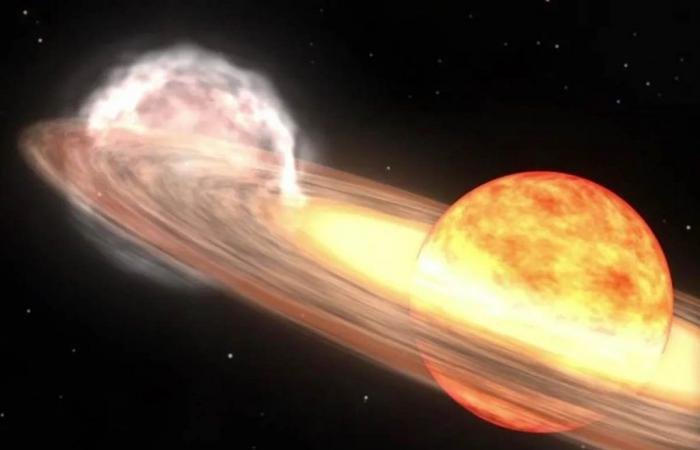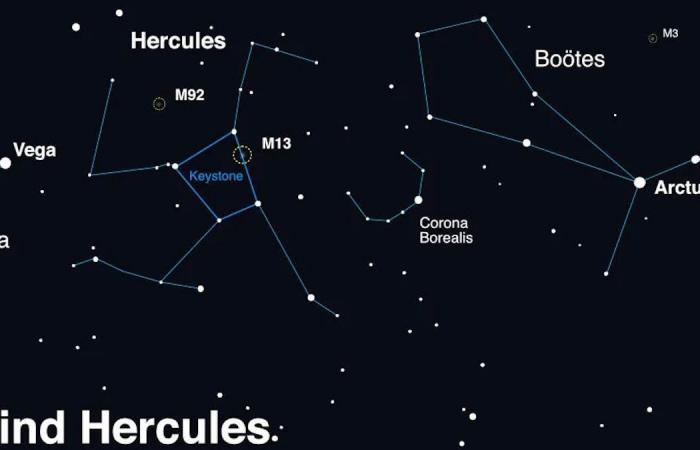Unmissable event announced by NASA: by September we will truly be able to admire the “explosion” of a star, in the binary system T Coronae Borealis, nicknamed “Blaze Star”. The event, which occurs on average every 80 years or so, will bring an “extra” bright point to the sky for a few consecutive days, visible to the naked eye. Marvelous!
©NASA/Goddard Space Flight Center
We’ve been talking about it for some time but now it seems really real: by this September a star will “explode” bringing an “extra” bright point to the sky for a few consecutive days, visible to the naked eye. The event will occur in the binary system T Coronae Borealisnicknamed “Blaze Star”.
Read also: We are about to witness the explosion of a star: here’s when it will happen (and how to admire it)
Astronomers and enthusiasts everywhere will then point to a now-dark spot in the Northern Corona about 3,000 light-years from Earth, where it “resides” T Coronae Borealis (T CrB), a binary system composed of one white dwarf (an Earth-sized remnant of a dead star with a mass comparable to that of our Sun) and aancient red giant which is slowly deprived of hydrogen by the relentless gravitational attraction of its neighbor.
The first recorded sighting of the nova T CrB occurred more than 800 years ago, in the autumn of 1217, when a man named Burchardabbot of Ursberg (Germany), he noticed a faint star which for a time shone with a great light.
The nova T CrB was last seen from Earth in 1946. Its behavior over the last ten years appears surprisingly similar to the behavior observed in a similar time frame leading up to the 1946 explosion. Therefore, following the period classical, the nova event could occur by September 2024.
What will really happen?
The red giant’s hydrogen is accumulating on the white dwarf’s surface, causing a buildup of pressure and heat. This will soon lead to a thermonuclear explosion powerful enough to sweep away the accumulated material. For TCrB, this event appears to repeat itself, on average, every 80 years.
It’s a unmissable event that will create a lot of new astronomers out there, giving young people a cosmic event that they can observe for themselves, ask their own questions and collect their own data,” comments Rebekah Hounsell, a researcher at NASA’s Goddard Space Flight Center in Greenbelt, Maryland. It will nurture the next generation of scientists
We don’t have to though confusing a nova with a supernova – scientists explain – because the latter is a final and titanic explosion that destroys some dying stars. In a nova event, however, like the one that is about to happen, the dwarf star remains intact, launching the material accumulated in a blinding flash. The cycle typically repeats itself over time, a process that can last tens or hundreds of thousands of years.
Read also: Yes, the star Betelgeuse will explode and be more visible than the full Moon, but here’s when
There are some recurring novae with very short cycles, but generally we do not often see a repeated explosion in a human lifetime, and rarely one so relatively close to our system – continues Hounsell – It is incredibly exciting have this front row seat
How to observe the event

©NASA
NASA has reconstructed a map showing Hercules and the “Northern Crown” in the night sky, created using planetarium software. To locate the “exploded” nova we will have to raise our eyes to the sky after sunset to see it HerculesTherefore Vega And Arthur between which, ideally tracing a straight line from one to the other, we will be able to identify the Corona Borealis system.
Once it explodes, the nova will be visible to the naked eye for just under a weekbut scientists are confident: it will be one show not to be missed.
Don’t want to miss our news?
Source: NASA
Read also:




